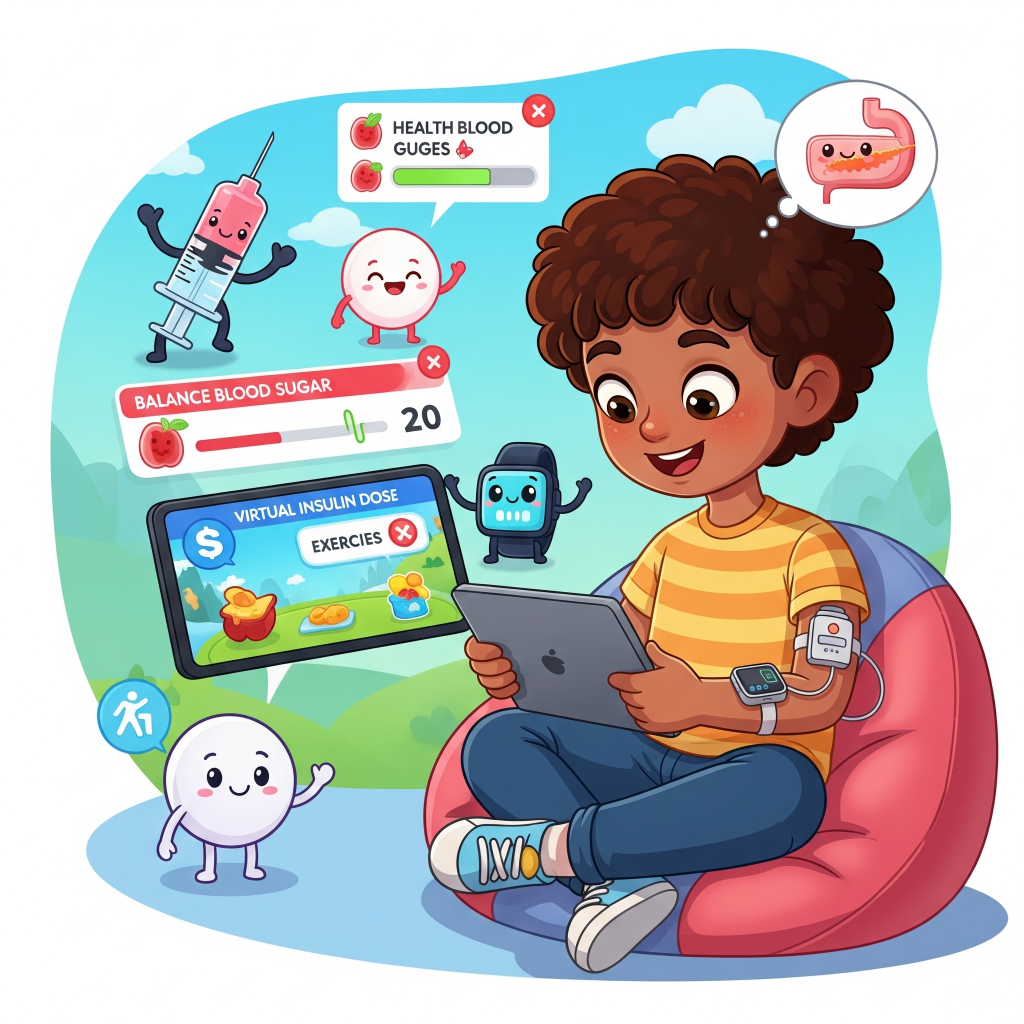Managing type 1 diabetes (T1D) can be overwhelming for anyone—especially for children. Carb counting, insulin tracking, and dietary choices can easily become confusing or even intimidating. But what if managing diabetes could feel more like playing a game?
Welcome to the T1D Learning Camp, where virtual characters, AI-generated conversations, and interactive challenges turn diabetes education into an engaging, personalized experience for children.
Using generative AI and Amazon’s latest technologies—including Bedrock, Polly, Translate, and Titan—this innovative program blends healthcare, gaming, and storytelling to help young patients not just learn, but actually enjoy the process.
Why Kids Struggle with Diabetes Education
Children with type 1 diabetes need to understand how to:
- Monitor and interpret their blood sugar
- Administer insulin properly
- Eat balanced meals and snacks
- Recognize signs of high or low glucose
- Respond to emergencies
Traditional educational approaches—pamphlets, lectures, or even videos—often fall flat. They can feel clinical, dry, or disconnected from the daily experiences of a child.
This is where interactive AI steps in.

What Is the T1D Learning Camp?
The T1D Learning Camp is a gamified, AI-powered environment where children explore diabetes management by engaging with intelligent virtual characters. These avatars are designed to be friendly, adaptive, and culturally responsive, tailoring their tone, language, and examples to each child.
Children can:
- Learn how various foods impact blood sugar
- Participate in quizzes and mini-games to reinforce safe insulin use
- Role-play daily routines, such as preparing a diabetes-friendly lunch
- Ask questions and receive voice-based answers through Amazon Polly
- Interact in their native language, with real-time translation via Amazon Translate
Behind the scenes, Bedrock powers the natural language capabilities, while Titan enables personalized content delivery, making the learning experience both intelligent and human-like.
The Power of Personalized, Playful Education
By combining essential health information with interactive gameplay, the T1D Learning Camp provides:
- Improved engagement: Children are more likely to revisit, interact, and absorb information.
- Increased retention: Studies show children retain more when learning is fun and emotionally engaging.
- Cultural relevance: AI adapts the educational content to each child’s language and context.
- Confidence building: Children feel more capable and in control of their health journey.
Initial pilot programs show that children using the platform demonstrate higher diabetes knowledge and better adherence to treatment plans compared to those using standard education tools.
A Glimpse Into the Future of Pediatric Health
The T1D Learning Camp is just one example of a growing trend in pediatric healthcare: using AI and gamification to address chronic conditions in children.
Other initiatives are exploring similar approaches for:
- Asthma education
- Mental health support
- Obesity prevention
- Learning tools for neurodiverse children
These programs aim to turn complex or stressful health challenges into manageable, even enjoyable, experiences.
Ethical Considerations and Challenges
While the potential is exciting, there are important concerns to address:
- Data privacy for minors using AI-driven platforms
- Ensuring human oversight remains central to care
- Balancing educational integrity with entertainment value
Developers are actively collaborating with pediatric experts, data privacy advocates, and clinical researchers to ensure these tools remain safe, responsible, and effective.
Final Thought: From Fear to Familiarity
For children living with type 1 diabetes, daily routines can often feel restrictive and overwhelming. But through AI-powered, game-based education, we have the opportunity to shift that narrative.
Instead of framing diabetes management as a burden, we can reimagine it as an adventure—one where children explore, engage, and grow in confidence.
This is not just the future of health education. It’s the future of empowering young patients to take charge of their own well-being.

Leave a Reply